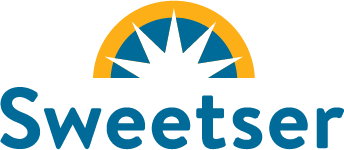A new mental health and substance use clinic has opened up in Sanford thanks to a $4 million grant from the Federal government.
Behavioral health provider, Sweetser, received the award from the Substance Abuse and Mental Health Services Administration to open up a Certified Community Behavioral Health Clinic (CCBHC) in Sanford, one of the first in York County.
CCBHC’s are designed to increase timely access to wraparound mental health and substance use services in areas that otherwise lack accessibility. Services include 24/7 crisis response and medication-assisted treatment.
“We have to meet folks where they’re at and in communities that desperately need more services,” said Wendy Anders, Sweetser’s Senior Director of Community Services. “This clinic will reduce barriers to accessing services in the region and will create a one stop shop for meeting various levels of patient needs.”
The 4-year grant will help Sweetser provide services to around 750 more children and families.

Photo Caption: Sweetser’s ribbon cutting opening up their new clinic in Sanford featuring State Rep. Anne-Marie Mastraccio, Sanford City Councilor Peter Tranchemontagne, County Commissioner Donna Ring, Sanford – Springvale Chamber of Commerce President Rick Stanley, Chamber Ambassadors, and Sweetser staff
Services include, but are not limited to:
- Outpatient Mental Health and Substance Use Screening, Assessment and Diagnosis
- Treatment for Outpatient Mental Health and Substance Use Disorder, including Medication-Assisted Treatment
- 24/7 Mobile Crisis Response & Crisis Stabilization
- Case Management Services
- Peer Support Services
- Psychiatric Medication Management & Care Coordination
CCBHCs have dramatically increased access to mental health and substance use disorder treatment, expanded states’ capacity to address the overdose crisis and established innovative partnerships with law enforcement, schools and hospitals to improve care, reduce recidivism and prevent hospital readmissions.
President Biden’s administration has identified this particular model as a priority for increasing access to mental health and recovery services.
“Sweetser successfully launched a clinic in Brunswick serving the Midcoast region, and just last year were given additional funds to expand that program,” says Sweetser’s President & CEO Jayne Van Bramer. “It’s clear Sweetser is seen as the organization best positioned to lead the development of CCBHCs across the state. The goal is to have a CCBHC in every county.”
The new clinic is located at 863 Main Street in Sanford. If someone is in need of services, Sweetser’s clinic will be offering special walk-in hours Mondays and Wednesdays from 10AM to 3PM, allowing for same day access for treatment assessment. Otherwise, people are encouraged to call the PromiseLine at 1-800-434-3000 or email info@sweetser.org to setup an appointment.








